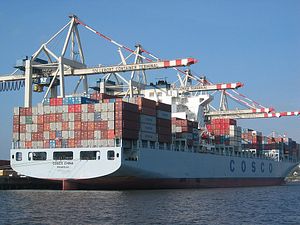Trans-Pacific View author Mercy Kuo regularly engages subject-matter experts, policy practitioners, and strategic thinkers across the globe for their diverse insights into U.S. Asia policy. This conversation with Nien Su, CEO of Artemis ESG, a boutique policy and international business consultancy in Washington DC and former chief economic advisor to the House Committee on Foreign Affairs in the U.S. Congress – is the 188th in “The Trans-Pacific View Insight Series.”
With U.S. tariffs hike to 25 percent and China’s retaliation on $60 million of American goods, what will be the actual impact on American consumers?
Both consumers and farmers will suffer as a result of the U.S.-China trade dispute. We, the consumer, will suffer because prices on much of what we buy will go up. Tariffs in their most basic form is a tax levied by the government to drive up prices so that imported goods are more expensive than domestic goods. Facing this situation, American companies must decide whether to pass the extra cost to the customer or absorb it and make adjustments elsewhere in their operations. Therefore, I fully expect prices to increase. Based on the projections that I’ve seen, consumers can expect their yearly costs to increase between $800 to $1,100 depending on how they shop.
However, as unfortunate as the situation is for consumers, it’s even worse for American farmers. China is America’s largest export customer of agricultural products, and China’s retaliation against this sector will further drive down global prices for agricultural goods. Therefore, farmers are hurt both at the frontend – paying more for consumer products – and in the backend by earning less for the products they produce and sell. This is a real tragedy and will have long-term impact on society.
Explain the rationale behind China’s targeted retaliation on farm and food products.
China is targeting farm and food products for two very important reasons. As America’s largest agricultural export customer, it holds considerably more leverage in this sector than in any other. Therefore, to maximize pain, farm and food products make an attractive target.
A secondary consideration is that a majority of America’s agriculture is located in states that comprise President Trump’s political base. By targeting such a key constituency, the Chinese seek to apply maximum pressure against the United States.
Washington is planning another round of tariffs on $300 billion of Chinese goods – what are the consequences of upping the ante?
The consequences are enormous. These additional tariffs represent almost everything that we buy from China. As a result, consumers can expect further increases in the cost of living. On the other hand, the consequences for small businesses can be frightening. If a business can’t diversify away from China, it runs the risk of going bankrupt. Businesses that can’t compete fail. Commodity prices will drop further, and the American farmer will continue to take the brunt of the pain. Finally, prolonged tariffs may lead to higher inflation and higher interest rates as cost of food and other products climb. That would be the worst of all outcomes.
Explain how President Trump’s adversarial approach will impact the national debate on U.S.-China relations among 2020 U.S. presidential contenders.
The president’s adversarial approach will shift the conversation about China towards a more confrontational stance. Looking back in history, America’s relationship with China has always swung between hope, opportunity, and friendship on one end of the spectrum to threat, antagonism, and discord on the other end. China’s actions over the years – theft of intellectual property rights, creation of artificial islands in the South China Seas, etc. – have made it difficult for those who favor engagement in either party to shape the conversation. I predict that the 2020 contenders will attack Trump’s “go-it-alone” approach rather than the fundamentals of the policy.
As U.S.-China competition intensifies, how should U.S. companies and policymakers navigate geopolitical uncertainty?
In these times of uncertainty, we recommend that all companies conduct a comprehensive assessment of their business(es) to quantify the true impact of public policy risk on the top and bottom-line. Steps should be taken to actively hedge against disruption by looking at strategies that balance China exposure. At the same time, it’s more important than ever to stay close to Washington policymakers to understand what’s coming down the road. Business operators will be rewarded for making difficult decisions today, because future downside risks far outweigh any upside opportunities in the short and medium term.
































